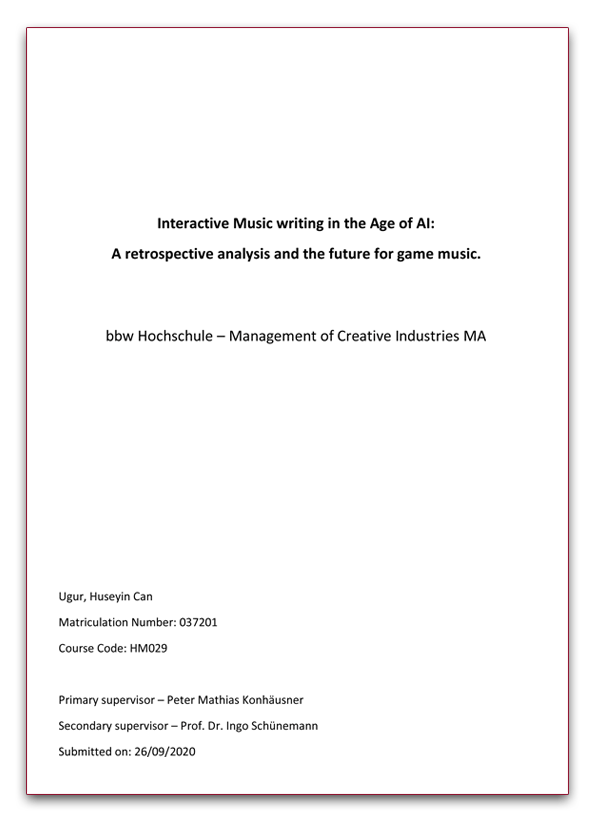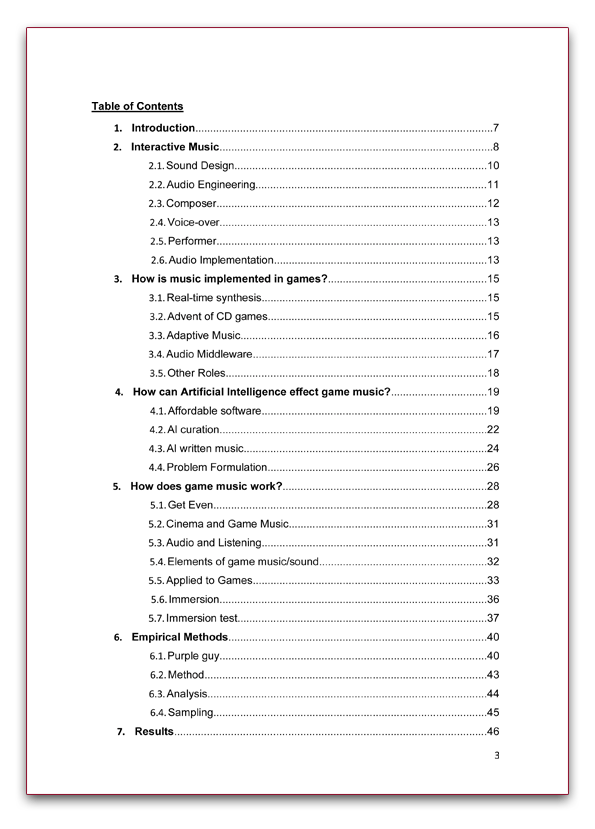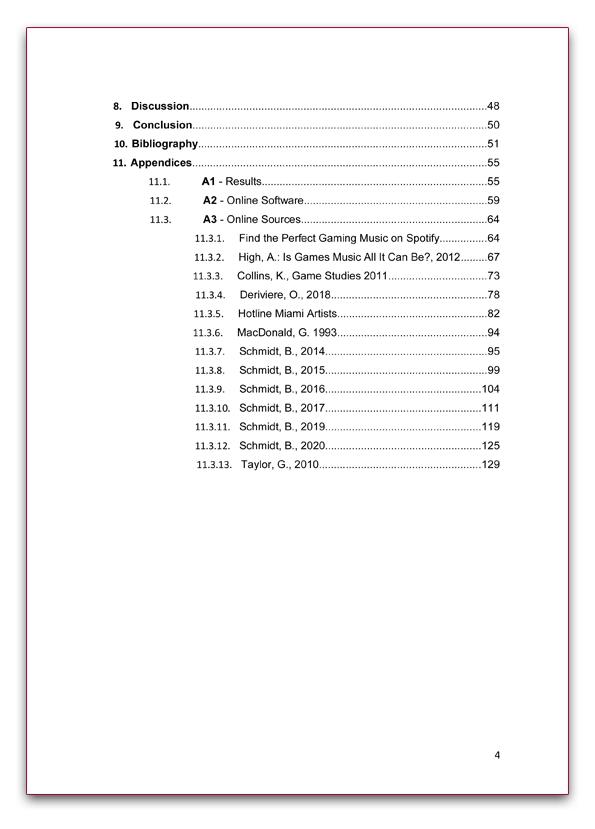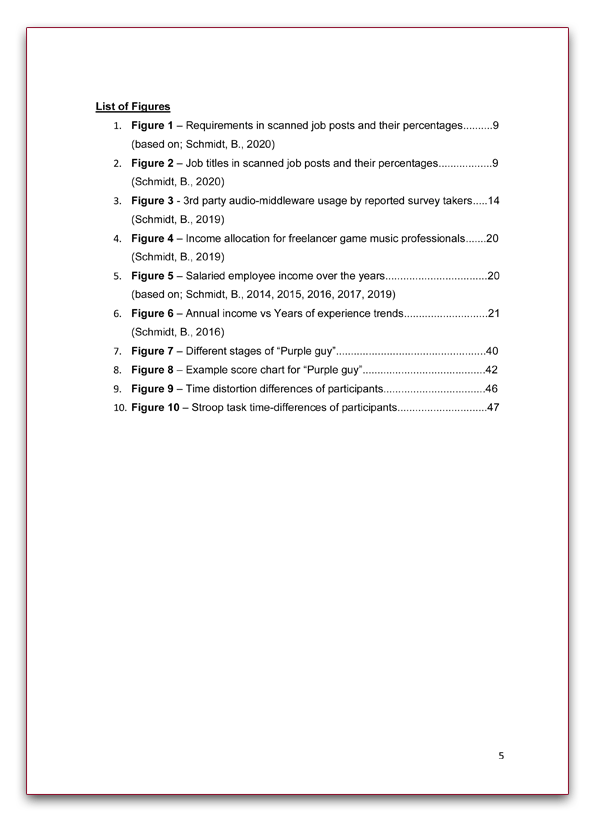
Interactive Music writing in the Age of AI: A retrospective analysis and the future for game music.
In this study interactive music writing industry has been evaluated. As the practice of writing music and designing sounds to video games, it’s history and its business dynamics have been researched. Furthermore, the methods of implementing music and sounds into games and their psychological effects on gamers have been studied from literature and past studies, all in order to formulate the question: “Will artificial intelligence disrupt interactive music industry?”
To answer this question, reports of surveys done over the past 5 years have been evaluated to understand past and current trends and extrapolate the future of its business aspects from the findings.
From the findings, it has been discussed that, as a small subsegment of the gaming industry, it has an exclusive community that mostly consists of freelancer male population. Moreover it is revealed from the reports that the employed minority of this community due to static annual incomes do more and more freelancer work on the side pushing the gap between the high end and low end segments of the market widen more, making for more individualised and nicheproducts.
To understand the effects of what improved game music could mean to games and gamers, past experiments and studies regarding how music and sounds work in games have been discussed. Based on these studies, a basic game has been designed as an experiment. In this experiment, the participants were tested for levels of depth of game experience in a game with increasing interactivity of audio elements. The results of the experiment whilst not having sufficient enough group of participants, showed some results that with more increased interactivity, the participants experienced comparatively deeper gaming experience.
EditionNo. 9AuthorHuseyin Can UgurMAManagement of Creative IndustriesYear2020Download PDFcreativeindustries.berlin



